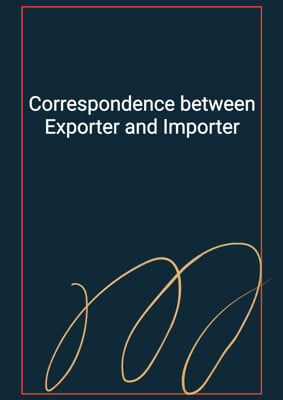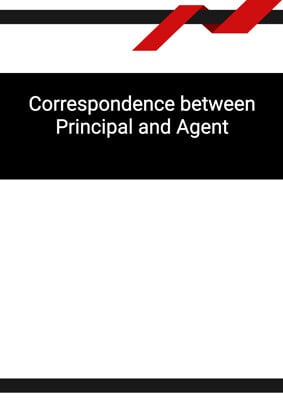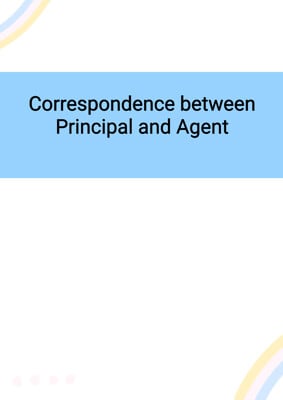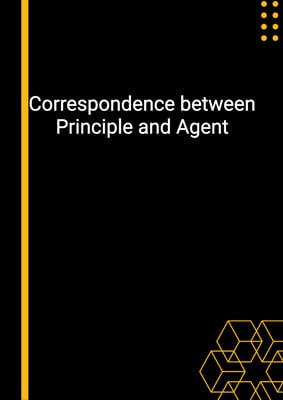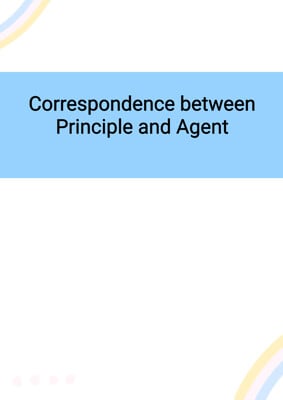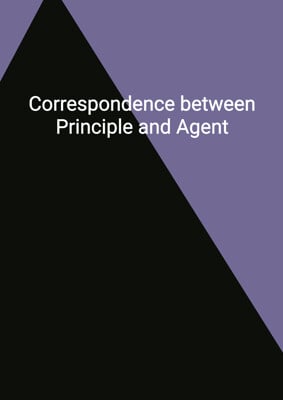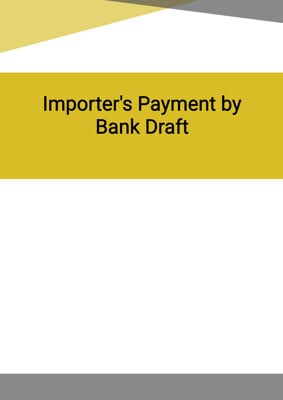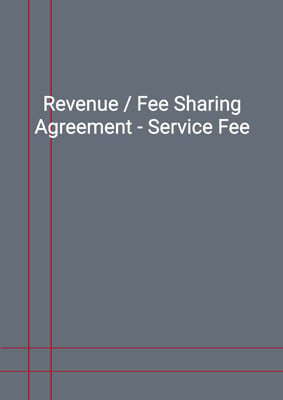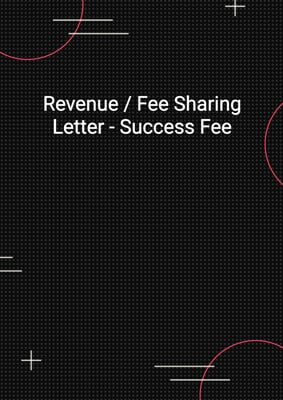How to Tailor the Document for Your Need?
01
Create Document
Click "Create Document" button and the document will be prepared with your account details automatically filled in.
02
Fill Information
Please fill in any additional information by following the step-by-step guide on the left hand side of the preview document and click the "Next" button.
03
Get Document
When you are done, click the "Get Document" button and you can download the document in Word or PDF format.
04
Review Document
Please review the document carefully and make any final modifications to ensure that the details are correct before sending to the addressee.
Document Preview
Document Description
The document titled 'Correspondence between Principal and Agent' is a letter that serves as a form of communication between a principal and an agent. The importance of this document lies in its ability to establish a professional relationship between the two parties and clarify the terms and conditions of their agreement.
The entire document consists of several sections, each serving a specific purpose. The first section includes the account information of the sender, such as their first name, last name, job title, and address. This information helps identify the sender and establish their credibility.
The second section is the date, which indicates the day the letter was written. This is important for record-keeping purposes and provides a reference point for future correspondence.
The third section is the salutation, which addresses the recipient of the letter. It is a polite way of acknowledging the recipient and setting the tone for the rest of the communication.
The fourth section expresses gratitude for the recipient's letter and acknowledges their belief in finding a satisfactory market for the sender's goods. However, the sender expresses some concerns about conducting all business on a credit basis.
The fifth section discusses the recipient's offer to act in a del credere capacity, which means assuming the risk of non-payment by customers. The sender agrees to accept this offer for a trial period but sets a condition. The condition is that the recipient must either provide a guarantor acceptable to the sender or lodge adequate security with the sender's bankers.
The sixth section requests the recipient to inform the sender of their decision on the matter and expresses the sender's hope to hear from them soon. The letter concludes with a polite closing, 'yours faithfully,' followed by the sender's name, job title, and signature.
Each section of the document plays a crucial role in conveying the sender's message and establishing the terms of their agreement. From providing necessary account information to expressing concerns and setting conditions, the document covers all aspects of the communication between the principal and agent.
How to use this document?
1. Enter the account first name, account last name, account job title, and address in the designated fields. This information will help identify the sender and establish their credibility.
2. Fill in the current date in the 'date' field. This will serve as a reference point for future correspondence.
3. Address the recipient of the letter in a polite and professional manner. Use 'dear sir/madam' to acknowledge the recipient.
4. Express gratitude for the recipient's letter and their belief in finding a satisfactory market for the sender's goods.
5. Raise concerns about conducting all business on a credit basis and mention the recipient's offer to act in a del credere capacity.
6. Accept the recipient's offer for a trial period but set a condition. The condition is that the recipient must either provide a guarantor acceptable to the sender or lodge adequate security with the sender's bankers.
7. Request the recipient to inform the sender of their decision on the matter.
8. Conclude the letter with a polite closing, 'yours faithfully,' followed by the sender's name, job title, and signature.
By following these steps, you can effectively use the 'Correspondence between Principal and Agent' document to establish a professional relationship and clarify the terms of your agreement with the recipient.
Not the right document?
Don’t worry, we have thousands of documents for you to choose from:



























